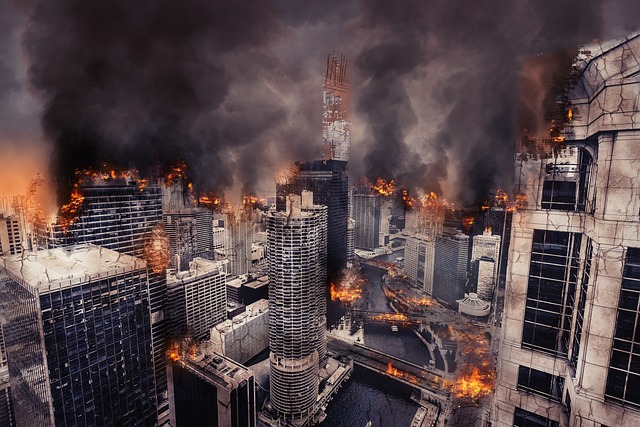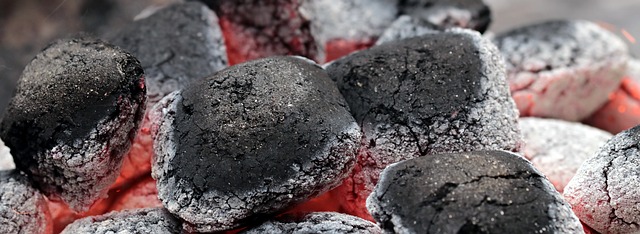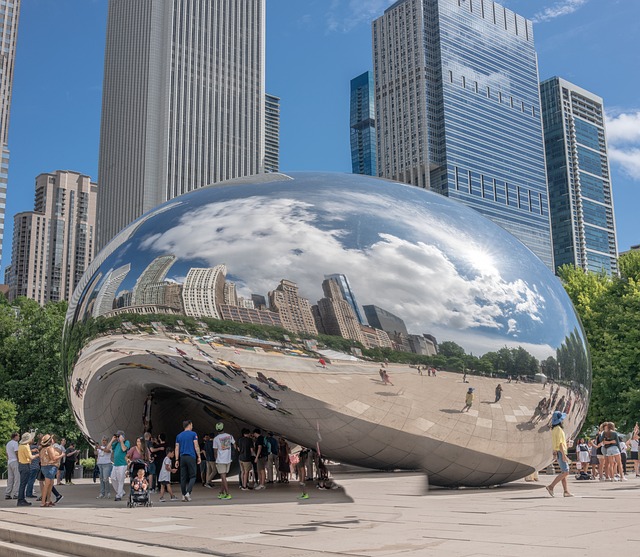In Chicago's climate-prone areas, water damage from burst pipes, appliance failures, roof leaks, and sewer level rises is common and requires immediate action. Homeowners should shut off the main water supply, document damage with photos, remove wet items, and use fans/dehumidifiers for cleanup. Extensive damage or health risks may require professional assistance. Quick response minimizes repairs and enhances home resale value, addressing buyer concerns about fire and water damage. Selling a house with water damage in Chicago requires strict compliance with Illinois property disclosure laws, including disclosure of hidden issues like mold. Choosing a reputable restoration company certified by IICRC is crucial for effective restoration and enhancing property market value. Proactive prevention through regular inspections and upgrades reduces repair costs and makes homes more marketable, even with previous fire or water damage.
In Chicago, water damage repair services are crucial for homeowners facing unexpected challenges. Understanding common causes, such as burst pipes or heavy rainfall, is the first step in mitigating immediate risks. This article guides you through the entire process, from assessing water damage to legal considerations like selling a house with prior damage. Learn tips for choosing reliable restoration companies and discover preventive measures to safeguard your property. Moreover, explore strategies to avoid future water damages specific to Chicago’s climate.
- Understanding Water Damage: Common Causes and Immediate Steps in Chicago
- The Process of Water Damage Repair: From Assessment to Restoration
- Legal Considerations: Can You Sell a House with Water Damage in Chicago?
- Choosing the Right Water Damage Restoration Company: Tips for Homeowners
- Preventing Future Water Damages: A Comprehensive Guide for Chicago Residents
Understanding Water Damage: Common Causes and Immediate Steps in Chicago
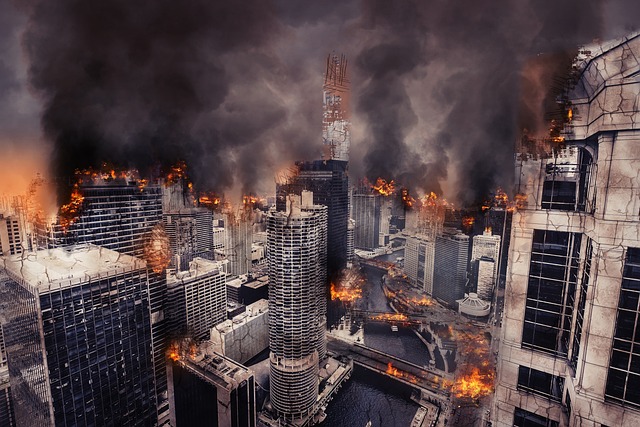
Water damage is a common issue in Chicago’s unpredictable climate, where severe weather events and heavy rainfall can lead to flooding and leakage problems. Understanding the causes and immediate steps to take after water damage occurs is crucial for Chicago homeowners.
Common causes range from burst pipes due to freezing temperatures, faulty appliances like water heaters or dishwashers, roof leaks during storms, and even rising sewer levels. Once water damage happens, it’s essential to act swiftly. The first step is to turn off the main water supply to prevent further leakage and then document the damage with photos for insurance claims. Immediate cleanup is vital; remove wet materials like carpets or furniture, dry out affected areas using fans and dehumidifiers, and consider professional assistance if the damage is extensive, especially when dealing with potential health hazards from mold growth. Remember, swift action can help minimize repairs and ensure a smoother process when selling a house that has experienced water damage in Chicago.
The Process of Water Damage Repair: From Assessment to Restoration
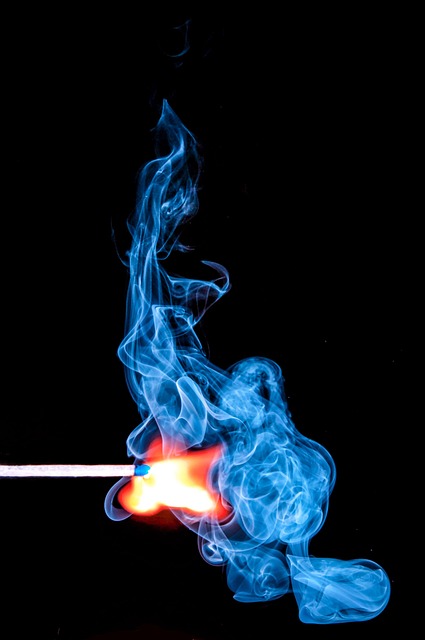
When water damage occurs in a home or property, prompt action is crucial for effective restoration and to prevent further issues like mold growth and structural damage. The process of water damage repair in Chicago involves several steps, from initial assessment to complete restoration. First, professionals inspect the affected areas to determine the extent of the damage and identify potential sources. They use advanced tools and techniques to assess moisture levels and locate any hidden water sources.
Once the assessment is complete, the restoration process begins. This includes removing damaged materials like drywall or insulation, extracting excess water from floors and walls, and drying out the entire space thoroughly. Depending on the severity of the damage, specialists might also need to address structural repairs, such as reinforcing beams or replacing damaged framing, before proceeding with cosmetic renovations. For homes with fire damage, it’s important to note that these repair services can enhance the property’s value, making it more attractive for potential buyers in the real estate market, even when selling a house that has fire damage Chicago.
Legal Considerations: Can You Sell a House with Water Damage in Chicago?

Selling a home with water damage in Chicago isn’t as straightforward as one might think, despite the potential for significant repairs and restoration. Illinois, like many states, has strict regulations regarding property disclosures. Homeowners are legally obligated to inform prospective buyers of any known material defects that could impact the property’s value or safety. Unaddressed water damage can lead to hidden issues such as mold growth, structural problems, or reduced resale value—all of which are significant concerns for buyers.
While it might be tempting to conceal or underplay water damage in hopes of a quicker sale, doing so could result in legal repercussions and even cost you more in the long run. Buyers have rights, and if they discover undisclosed water damage that was not properly addressed, they may file claims against the seller. For these reasons, it’s crucial to disclose any water damage and, where necessary, obtain professional assessments and quotes for repairs before putting your Chicago property on the market. This transparency protects both you as a seller and the buyer, ensuring a smoother and more legally sound transaction.
Choosing the Right Water Damage Restoration Company: Tips for Homeowners
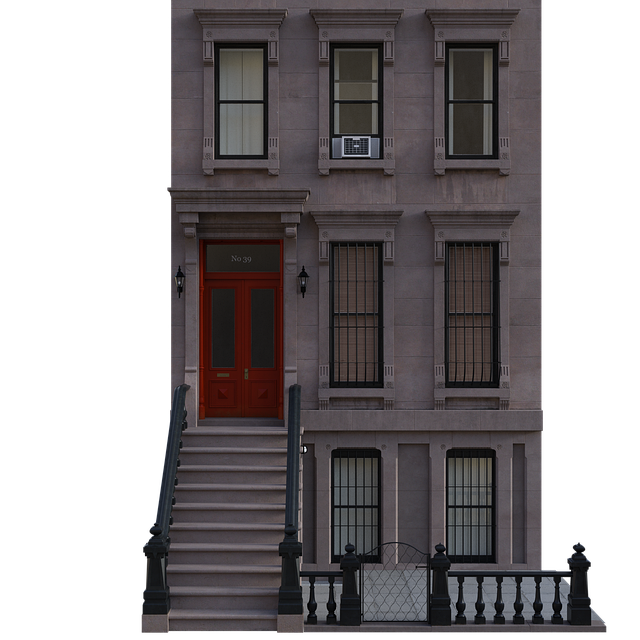
When faced with water damage, especially after a fire, homeowners in Chicago need to act quickly and choose a reputable restoration company. The right team can make all the difference in ensuring your home is restored to its pre-loss condition. Start by checking for certifications such as those from the Institute of Inspection, Cleaning, and Restoration Certification (IICRC). This guarantees the company follows industry standards.
Next, consider their experience handling similar situations. Reputable firms often have case studies or customer testimonials showcasing their expertise in repairing fire damage and restoring homes. Don’t hesitate to ask for references and check online reviews to gauge their professionalism and the quality of their work. Remember, choosing the right restorer is crucial, especially if you plan to sell your home later—a well-restored property after water or fire damage can significantly enhance its market value.
Preventing Future Water Damages: A Comprehensive Guide for Chicago Residents
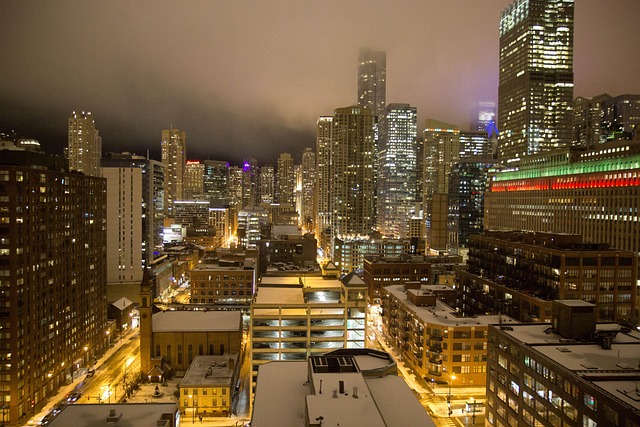
Water damage is a common issue in Chicago’s unpredictable climate, but residents can take proactive steps to prevent future incidents and protect their homes. A comprehensive guide to water damage prevention starts with understanding potential sources. For instance, heavy rainfall, burst pipes, or faulty appliances can lead to significant water intrusion. Regular inspection and maintenance are key; check for leaks in plumbing, roofs, and windows on a routine basis. Addressing issues promptly is crucial; even minor drips can turn into major problems over time.
Additionally, implementing simple home upgrades can go a long way. Water-resistant materials for walls and ceilings, as well as waterproof membranes under flooring, offer excellent protection. Using dehumidifiers to control humidity levels indoors also helps prevent mold growth, a common aftereffect of water damage. Moreover, preparing an emergency plan, including identifying valuable items to protect and knowing how to shut off utilities in case of a flood, can ensure a swift response when accidents occur. This proactive approach not only saves on repair costs but also enhances the overall value of your home, making it more attractive for potential buyers if you decide to sell, even with previous water damage repairs in Chicago.
Water damage repair services in Chicago are crucial for not only restoring homes but also ensuring legal compliance, especially regarding selling properties. As discussed, understanding common causes and immediate steps is vital for minimizing losses. The repair process involves thorough assessment and restoration, while legal considerations, such as the ability to sell a house with water damage in Chicago, should be carefully navigated. Choosing the right restoration company and preventing future damages are key strategies for homeowners. By following these guidelines, Chicago residents can effectively manage water damage and even consider selling their properties without legal barriers.

